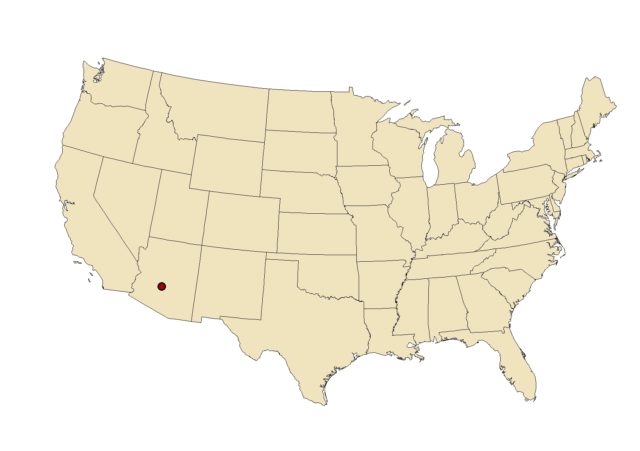Due to rising temperatures, communities in the West will likely experience an increasingly uncomfortable urban climate that will have dangerous consequences for unsuspecting residents. Increased daytime and nighttime temperatures associated with the urban heat island can affect a community’s ability to stay healthy. Sensitive populations like children, the elderly, those with health conditions, disabled and low-income residents are especially vulnerable. To address the impacts of rising temperature, the City of Phoenix as a community formed the Heat Relief Network. Operating during the summer months (March to September) when temperatures consistently rise above 100°F and extreme heat warnings are issued by the National Weather Services, the Heat Relief Network augments the efforts of agencies assisting people who are homeless as well as the elderly and disabled. The network provides additional community resources during times of increased need.
 In 2005 due to an especially hot and deadly summer the year before, the City of Phoenix, the Maricopa Association of Governments (MAG) and community-based and faith-based organizations, implemented an initiative to curb the incidences of heat-related deaths. This resulted in a three-pronged community approach:
In 2005 due to an especially hot and deadly summer the year before, the City of Phoenix, the Maricopa Association of Governments (MAG) and community-based and faith-based organizations, implemented an initiative to curb the incidences of heat-related deaths. This resulted in a three-pronged community approach:
1. Hydration (Water):
- Distribution – An organized effort by staff and/or volunteers within a participating organization to distribute water to the homeless, elderly and people with disabilities in their community or surrounding areas.
- Collection – An organized effort to collect water.
- Storage – Providing space for the storage of water.
2. Heat Refuge:
- An organized effort to provide a hydration station and a safe, cool place indoors out of the heat during the day for the homeless population within the community.
3. Wellness Checks
- An organized effort, by a participating organization’s staff and/or volunteers, to identify and coordinate wellness checks on individuals in their communities who are potentially at high risk for heat stress.
The Heat Relief Network provides:
- Water donation and distribution points
- Hydration Station and Heat Refuge Locations
- Wellness checks for elderly or disabled individuals by faith and community organizations
- A fact sheet on how heat can affect your health
Case Study Resources
Heat Relief Regional Network – website
Downloaded from ResilientWest.org
a project of
Resilient Communities and Watersheds
- Challenges:
- publichealth
- urbanheat
- State:
- arizona
- Scale:
- community
- Type:
- urban

